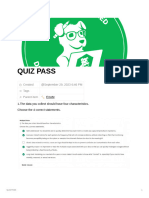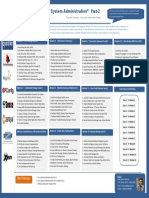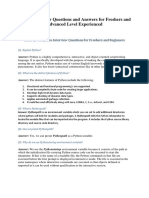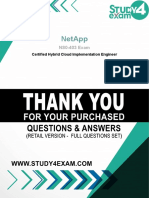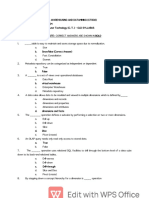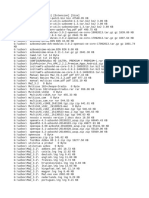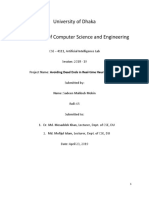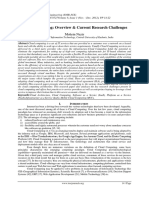0% found this document useful (0 votes)
2K views4 pagesDatadog Fundamentals
The document provides information about the Datadog Fundamentals certification exam, including the topics covered, target candidates, exam format, and study materials. It will test knowledge of computer fundamentals, the Linux operating system, YAML, JSON, Python, shell scripts, networking, installing and configuring the Datadog agent and integrations, troubleshooting, and using Datadog features like metrics, tags, monitors and searches.
Uploaded by
hanene.cheikhrouhouCopyright
© © All Rights Reserved
We take content rights seriously. If you suspect this is your content, claim it here.
Available Formats
Download as PDF, TXT or read online on Scribd
0% found this document useful (0 votes)
2K views4 pagesDatadog Fundamentals
The document provides information about the Datadog Fundamentals certification exam, including the topics covered, target candidates, exam format, and study materials. It will test knowledge of computer fundamentals, the Linux operating system, YAML, JSON, Python, shell scripts, networking, installing and configuring the Datadog agent and integrations, troubleshooting, and using Datadog features like metrics, tags, monitors and searches.
Uploaded by
hanene.cheikhrouhouCopyright
© © All Rights Reserved
We take content rights seriously. If you suspect this is your content, claim it here.
Available Formats
Download as PDF, TXT or read online on Scribd
/ 4
